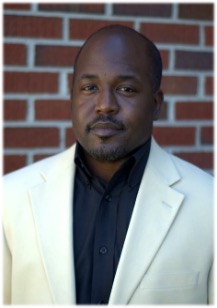Eric M. Brown, PhD
Core Faculty and Assistant Professor
Education: I received my BS in Psychology from Texas A&M University (College Station), M.Div. from Abilene Christian University, M.Ed. & Ed.S in Clinical Mental Health Counseling from the University of Florida, and PhD in Counselor Education and Supervision from Old Dominion University in Norfolk, VA.

Full Curriculum Vitae
Biography: I am currently an Assistant Professor in the Mental Health Counseling and Behavioral Medicine Program here at Boston University’s School of Medicine. Most recently, I was an Assistant Professor in the Counseling and Special Education department at DePaul University in Chicago, Illinois. For the past 12 years, I have worked in various clinical settings such as a level one trauma hospital, a community mental health counseling center, and a private practice. I am currently a member of the American Counseling Association, International Association for Resilience and Trauma Counseling, and the Association for Counselor Education & Supervision. My service to the community has been focused on consultation and training in areas related to the mental health development of marginalized populations. I routinely present to schools, adolescent community development organizations, and churches on topics related to trauma and trauma-informed care.
Teaching: The goal of my teaching is to support my students’ sense of calling to the counseling profession. I seek to foster a “critically compassionate intellectualism” (CCI) as this posture is imperative in the training of counselors who honor the dignity of all clients. CCI is a pedagogical framework developed by Latine educators that is operationalized at the intersection of three emphases: critical pedagogy, social-justice oriented education, and compassionate student-teacher relationships. CCI emphasizes authentic connection as essential to intellectual and human development. I hope to create growth-fostering relationships with my students in order to create safe spaces that will enable them to think critically about their social location and what this means for their interaction with clients. Through the use of role-plays, here-in-now processing of experiential activities, and weekly reflection papers, I aim to increase my students’ awareness of their internal and external processes. I further want to help students contextualize these experiences within a larger socio-political framework recognizing and honoring the ways our experiences in relationships are affected by our social location.
Q. Please describe your clinical and research interests.
Clinical Interests: Most of my clinical work has centered on issues related to trauma, addiction, and general mental health issues. In the past five years I have undergone extensive training in Emotionally Focused Therapy, Narrative Exposure Therapy, and EMDR from the EMDR Institute, Inc. I have also received extensive training in trauma-informed care and counseling through the Green Cross Academy.
My theoretical orientation has been shaped by all of the aforementioned training, and is based on an attachment and relational-cultural lens. I believe that the person of the therapist and their ability to foster a growth fostering relationship based on trust and affirmation is the most significant tool for healing. I believe that by fostering confidence in the therapeutic relationship that a person can then internalize such a relationship which will, in turn, lead to greater self-confidence in their ability to grow and heal.
Research Interests: One thread of my research examines ways to prevent Black youth suicide through increasing mental health literacy within the Black community. I’m currently working on creating interventions to raise awareness of the epidemic of suicide among Black youth and assist caregivers and other concerned adults in creating conversations around issues related to mental health
A second thread of my research examines factors that contribute to compassion satisfaction, burnout, and secondary traumatic stress for helping professionals. For example, I have studied the rates of Adverse Childhood Experiences of Counselors and how these personal-historical factors predict rates of compassion satisfaction, burnout, and secondary traumatic stress. I have also conducted research on the rates of racial trauma of Black therapists and Black School Counselors and Psychologists and how they correlate with burnout, resilience, and social support.
Q. Why did you choose to be a faculty member in the Mental Health Counseling and Behavioral Medicine Program?
I was most impressed with the faculty and students I met. The faculty are clinicians with a wealth of experience in a diverse range of areas critical to mental health and have a sincere desire to educate counselors toward intellectual and compassionate care for all persons. I found the students to be very bright and inquisitive, coming from different parts of the U.S. and the world, and was aware of the significant contributions alumni are making to the field of mental health. I also chose this program in order to have the opportunity to return to a medical school setting. The potential for cross-disciplinary collaborations was a significant draw, and I believe this program at BUSM will continue to greatly influence the profession of counseling in regard to behavioral health.